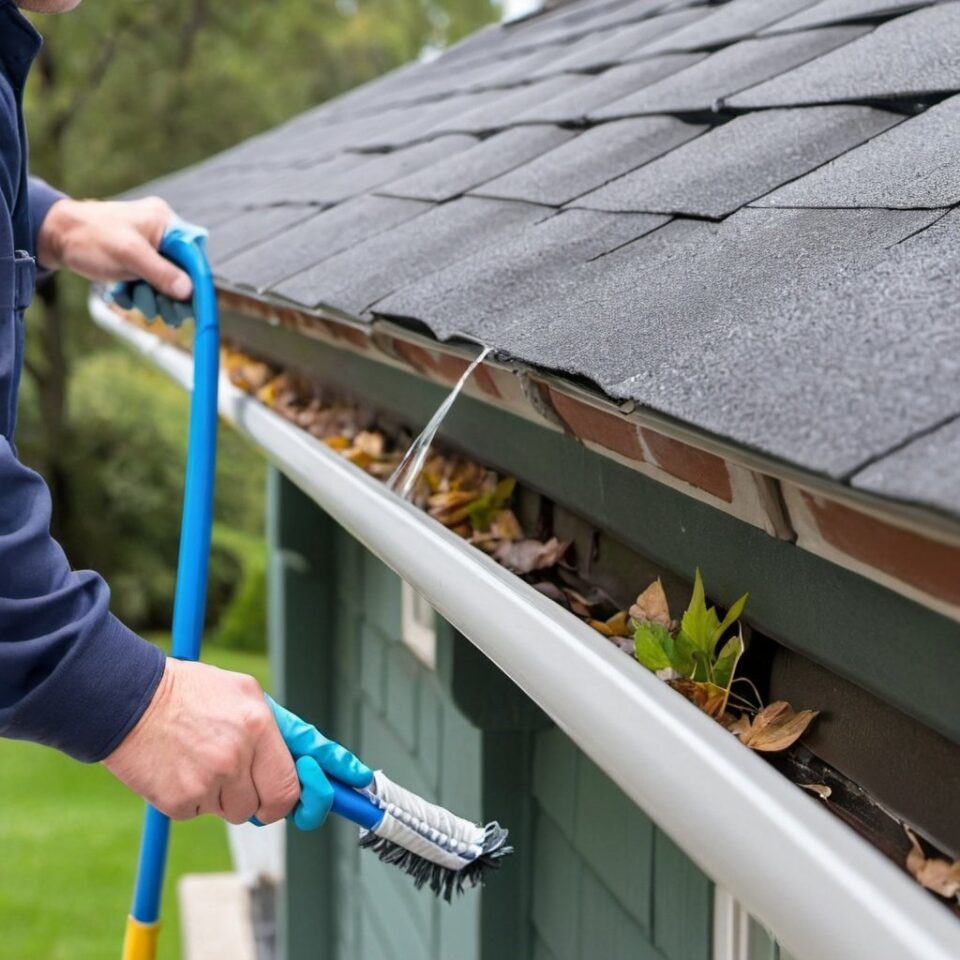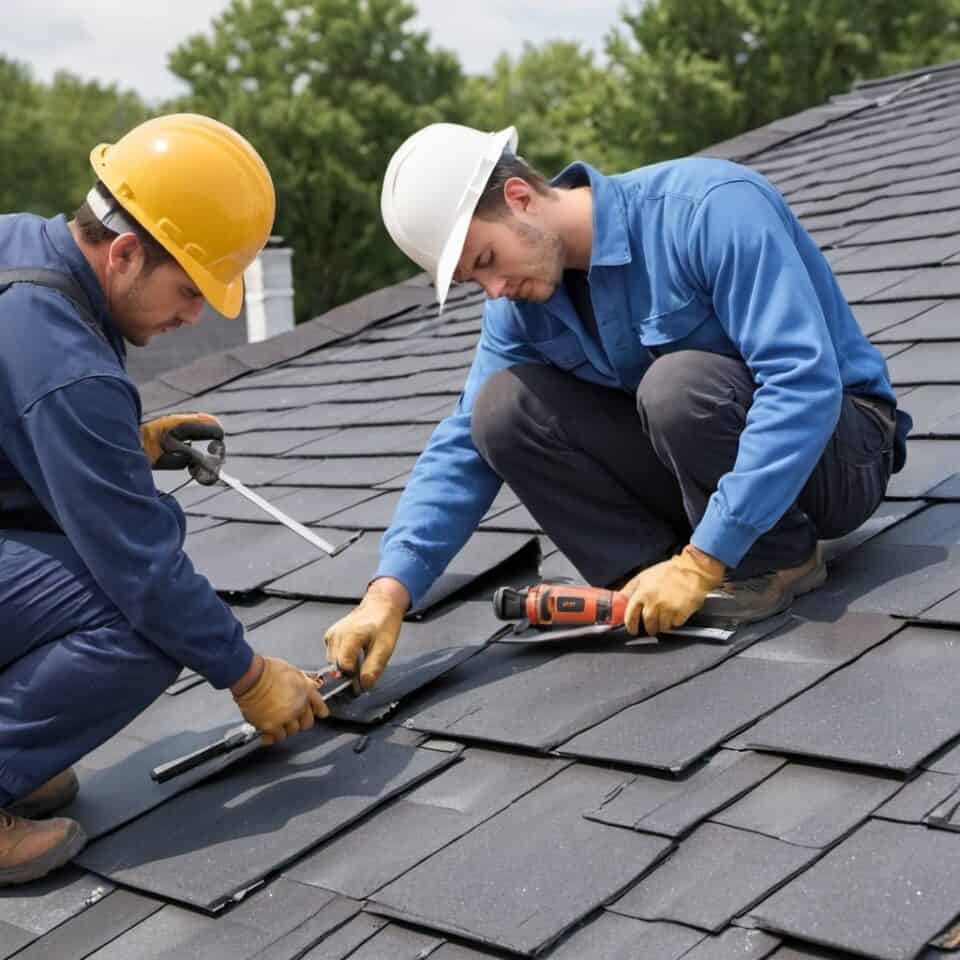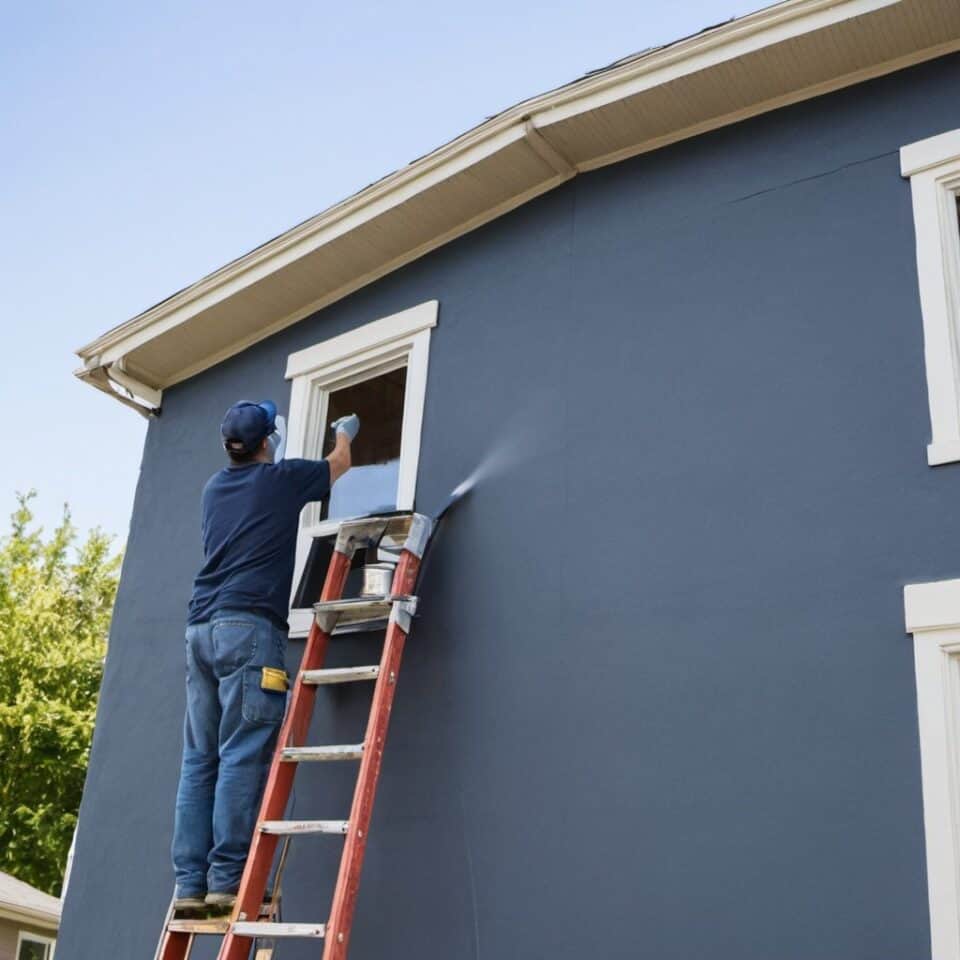When it’s time to replace your roof, it’s an opportunity to explore the various types of shingles available. While asphalt shingles are the most common choice, there are other options that can enhance the look and durability of your home. In this comprehensive guide, we will explore the most popular types of shingles, including asphalt, metal, wood, clay tile, solar, rubber, and synthetic shingles.
Key Takeaways
- There are different types of shingles available, including asphalt, metal, wood, clay tile, solar, rubber, and synthetic shingles.
- Asphalt shingles are affordable and versatile, suitable for both residential and commercial buildings.
- Metal shingles offer a modern and durable option for roofing, resistant to harsh weather conditions.
- Wood shingles provide a classic and rustic look but require regular maintenance.
- Clay tile shingles offer aesthetic appeal and can last up to 150 years, but they are heavy and expensive.
Asphalt Shingles: Affordable and Versatile
When it comes to roofing options, asphalt shingles are a popular choice for both residential and commercial buildings. Not only are they affordable, but they are also versatile and offer a range of benefits. Whether you’re looking to replace your old roof or install a new one, asphalt shingles might be the perfect solution for you.
One of the main advantages of asphalt shingles is their affordability. They are the most cost-effective roofing option on the market, making them an attractive choice for homeowners on a budget. Despite their affordability, asphalt shingles are designed to be durable and long-lasting. With proper maintenance, they can last up to 30 years, providing excellent value for money.
Another benefit of asphalt shingles is their versatility. They come in various styles, colors, and shapes, allowing homeowners to choose a shingle design that complements their home’s architecture. Whether you prefer a traditional three-tab shingle or a more contemporary architectural shingle, there is an asphalt shingle option to suit your aesthetic preferences.
Types of Asphalt Shingles
There are three main types of asphalt shingles: standard asphalt or 3-tab shingles, architectural asphalt shingles, and synthetic asphalt shingles. Standard asphalt shingles are the most basic and affordable option. They have a flat appearance and are available in a wide range of colors.
Architectural asphalt shingles, also known as dimensional or laminate shingles, offer a more textured and three-dimensional look. They can mimic the appearance of other roofing materials, such as wood or slate, while providing the durability and cost-effectiveness of asphalt.
Synthetic asphalt shingles are made from a combination of materials, such as fiberglass and asphalt. They offer enhanced durability and resistance to harsh weather conditions. Synthetic shingles can also mimic the appearance of other roofing materials, providing homeowners with more design options.
| Type of Asphalt Shingle | Description | Benefits |
|---|---|---|
| Standard Asphalt or 3-Tab Shingles | Basic and affordable | Wide range of colors |
| Architectural Asphalt Shingles | Textured and three-dimensional | Mimics the appearance of other materials |
| Synthetic Asphalt Shingles | Made from a combination of materials | Enhanced durability and design options |
In conclusion, asphalt shingles are an affordable and versatile roofing option that offers both aesthetic appeal and durability. With various types to choose from, you can find the perfect asphalt shingle to suit your needs and preferences. Whether you’re looking for a traditional or modern look, asphalt shingles are a reliable choice for your residential or commercial property.
Metal Shingles: Modern and Durable
Metal shingles are a popular choice for homeowners looking for a modern and durable roofing option. They offer a range of benefits, including longevity, resistance to harsh weather conditions, and energy efficiency. With their sleek appearance and diverse range of styles and colors, metal shingles can enhance the aesthetic appeal of any home.
One of the key advantages of metal shingles is their longevity. They have a lifespan of up to 50 years, making them a long-term investment for homeowners. Metal shingles are resistant to weather damage, including snow, ice, and high winds. This durability ensures that your roof remains intact and protects your home for many years to come.
In addition to their durability, metal shingles are also energy-efficient. They reflect heat from the sun, reducing the energy required to cool your home during hot summer months. This can lead to cost savings on your utility bills and a reduced carbon footprint. Furthermore, metal shingles are often made from recycled materials, making them an environmentally friendly choice.
Types of Metal Shingles
When it comes to metal shingles, there are various options to choose from. The most common types include:
- Aluminum shingles: Lightweight and resistant to corrosion, these shingles are a popular choice for coastal areas.
- Copper shingles: Known for their distinctive patina, copper shingles offer a unique and elegant look.
- Steel shingles: Durable and cost-effective, steel shingles are a practical choice for many homeowners.
- Tin shingles: These shingles have a traditional appearance and can be a great option for historical homes.
- Corrugated metal shingles: With their distinctive shape, these shingles create a contemporary and industrial aesthetic.
Each type of metal shingle has its own set of advantages and considerations. It’s important to consult with roofing professionals to determine the best option for your specific needs and preferences.
| Metal Shingle Type | Advantages | Considerations |
|---|---|---|
| Aluminum | Lightweight, corrosion-resistant | Higher cost compared to other types |
| Copper | Distinctive patina, long lifespan | Higher cost, requires professional installation |
| Steel | Durable, cost-effective | Prone to rust if not properly coated |
| Tin | Traditional appearance, suitable for historical homes | Less commonly available, may require special installation techniques |
| Corrugated | Contemporary, industrial aesthetic | Less insulation compared to other types |
Overall, metal shingles offer a modern and durable roofing solution for homeowners. With their longevity, resistance to harsh weather conditions, and energy efficiency, they are becoming increasingly popular. Consider the different types of metal shingles available and consult with professionals to make an informed decision that suits your specific needs and enhances the overall look of your home.
Wood Shingles: Classic and Rustic
When it comes to achieving a classic and rustic look for your roof, wood shingles are an excellent choice. With their natural beauty and timeless appeal, wood shingles can add warmth and character to any home. There are two main types of wood shingles: wood shakes and wood shingles, each offering a unique aesthetic.
The Difference Between Wood Shakes and Wood Shingles
Wood shakes have a thicker and more textured appearance compared to wood shingles. They are handcrafted, giving them a rustic and authentic look. On the other hand, wood shingles are precision-cut for a more uniform appearance. Both options can enhance the overall charm of your home, but the choice between shakes and shingles ultimately comes down to personal preference.
Wood shakes provide a rugged and natural look, while wood shingles offer a more polished and refined appearance.
When it comes to durability, wood shingles can last between 15 and 50 years, depending on the weather conditions and treatment. However, it’s important to note that wood shingles require regular maintenance to prevent fire risks and prolong their lifespan. Regular inspections, cleaning, and the application of protective coatings are essential to ensure the longevity of wood shingles.
| Pros | Cons |
|---|---|
| – Classic and rustic aesthetic – Natural beauty – Adds warmth and character | – Requires regular maintenance – Higher risk of fire – Potential insect damage |
Wood shingles are often used in historical or traditional-style homes, as they can replicate the authentic roofing materials used in the past. However, it’s important to check local building codes and regulations before choosing wood shingles, as some areas have restrictions on their use due to fire safety concerns.
In conclusion, wood shingles provide a classic and rustic option for homeowners who prioritize aesthetics and are willing to invest in regular maintenance. With proper care and attention, wood shingles can enhance the overall beauty of your home and create a charming and inviting atmosphere.
Clay Tile Shingles: Aesthetic and Long-lasting
When it comes to choosing the right roofing material for your home, clay tile shingles are a top contender. Also known as stone tile or slate shingles, they offer a beautiful and long-lasting solution that can enhance the overall aesthetic appeal of your property.
Clay tile shingles are known for their durability and longevity. When properly installed and maintained, they can last between 60 and 150 years, far surpassing the lifespan of many other roofing materials. This makes them an excellent investment for homeowners looking for a roofing solution that will stand the test of time.
Not only are clay tile shingles durable, but they also provide a unique and visually striking appearance. With their distinctive texture and earthy tones, they can add a touch of elegance and charm to any architectural style, particularly Mediterranean and Spanish-inspired designs.
However, it’s important to note that clay tile shingles are quite heavy compared to other roofing materials. This means that your roof may require additional support to bear the weight of the tiles. Additionally, clay tile shingles are among the most expensive roofing options available. While the initial cost may be higher, their long lifespan and timeless beauty make them a worthwhile investment for many homeowners.
| Pros | Cons |
|---|---|
| Long lifespan (60-150 years) | High initial cost |
| Visually appealing | Requires additional roof support |
| Durable and resistant to weather conditions | |
| Increases property value |
Other Types of Shingles: Solar, Rubber, and More
In addition to the traditional shingle options, there are other types of shingles available that offer unique benefits and considerations. Here are a few alternative shingle options to consider:
Solar Shingles
Solar shingles are a innovative solution that combines the functionality of a roof with solar panels, generating electricity for your home. These shingles are designed to seamlessly integrate into your roof, providing a clean and aesthetically pleasing energy solution. With solar shingles, you can harness the power of the sun while also protecting your home from the elements.
Rubber Shingles
Rubber shingles, also known as PVC shingles, are a great option for those looking for energy efficiency and durability. These shingles are commonly used in commercial roofing due to their ability to withstand extreme weather conditions. Rubber shingles provide excellent insulation, reducing energy costs and contributing to a more sustainable home.
Synthetic Shingles
Synthetic shingles are an affordable alternative to traditional roofing materials. Made from a combination of materials, such as plastic and rubber, synthetic shingles can mimic the appearance of other types of shingles, including slate, wood, or asphalt. These shingles offer the benefits of durability, low maintenance, and customization options, making them a versatile choice for homeowners.
| Shingle Type | Key Features | Considerations |
|---|---|---|
| Solar Shingles | – Generate electricity for your home – Aesthetically pleasing integration – Protection from the elements | – Higher upfront cost – Requires professional installation |
| Rubber Shingles | – Energy efficient – Excellent weather resistance – Durable and long-lasting | – Can be more costly than traditional shingles – May require professional installation |
| Synthetic Shingles | – Cost-effective option – Versatile styles and colors – Low maintenance | – May not offer the same authenticity as natural materials – Durability may vary depending on the brand |
When selecting the right shingle type for your home, it’s important to consider your specific needs, budget, and long-term goals. Consult with roofing professionals to determine the best choice for your unique circumstances. Whether you choose solar shingles, rubber shingles, or synthetic shingles, these alternative options can provide additional benefits and enhance the overall performance of your roof.
Conclusion
Now that you’re familiar with the different types of shingles available, you can make an informed decision when it’s time to replace your roof. Consider factors such as cost, lifespan, weather resistance, and maintenance requirements to determine the best type of shingles for your home.
Asphalt shingles are a popular choice for their affordability and versatility. They are suitable for both residential and commercial buildings, offering a range of options including standard asphalt, architectural asphalt, and synthetic asphalt shingles.
If you’re looking for a modern and durable option, metal shingles are a great choice. They can withstand harsh weather conditions and come in various styles and colors, such as aluminum, copper, steel, tin, and corrugated metal.
Wood shingles provide a classic and rustic look, perfect for historical or traditional-style homes. They require regular maintenance to prevent fire risks and have a lifespan that depends on weather conditions and treatment.
For an aesthetic and long-lasting roofing option, clay tile shingles offer both beauty and durability. They are known for their appeal in Mediterranean and Spanish-style architecture, but may require additional roof support due to their weight.
Lastly, there are other types of shingles available, such as solar shingles, rubber shingles, and synthetic shingles. Solar shingles combine the functionality of a roof and solar panels, while rubber and synthetic shingles provide energy efficiency and mimic the appearance of other shingle types.
Consult with roofing professionals to choose the right type of shingles for your specific needs. With careful consideration, you can enhance the look and durability of your home with the best type of shingles available.
FAQ
What is the most common type of shingle used in the United States?
The most common type of shingle used in the United States is asphalt shingles.
How long do asphalt shingles typically last?
Asphalt shingles can last up to 30 years.
What are the different types of asphalt shingles?
There are three main types of asphalt shingles: standard asphalt or 3-tab shingles, architectural asphalt shingles, and synthetic asphalt shingles.
How long do metal shingles usually last?
Metal shingles can last up to 50 years.
Are wood shingles suitable for historical or traditional-style homes?
Yes, wood shingles are often used in historical or traditional-style homes.
How long can clay tile shingles last?
Properly installed clay tile shingles can last between 60 and 150 years.
What are solar shingles?
Solar shingles combine the functionality of a roof and solar panels, generating electricity for your home.
What are synthetic shingles made from?
Synthetic shingles are made from a combination of materials and can mimic the appearance of other types of shingles.
How should I choose the right type of shingles for my home?
Consider factors such as cost, lifespan, weather resistance, and maintenance requirements when choosing the right type of shingles for your home. Consulting with roofing professionals can also help you make an informed choice.




